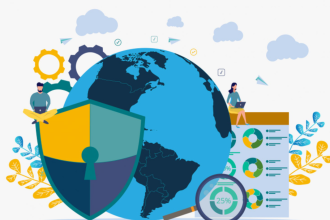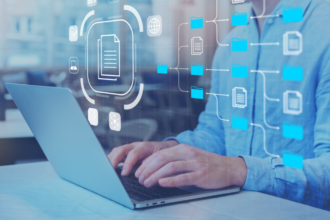Passwords are crucial for our online safety in the modern day. As more and more private and sensitive data is sent and kept digitally, robust safeguards must be in place to prevent unwanted access. Passwords are an additional safeguard that aid in the protection of our online accounts and confidential material.
Passwords are needed to access different sorts of accounts and services. Password-protected accounts and resources reduce the risk of illegal usage and safeguard sensitive data from prying eyes. A recent survey by ExpressVPN about password reset and how much time people spend doing so explains why we forget our passwords and how often we reset them in detail.
Passwords safeguard our private data and the networks and infrastructures of businesses and governments. Organizations could get assistance in ensuring that only authorized users have access to and can use their assets by necessitating a password to gain entry to these systems.
Is Frequent Password Reset Not Recommended?
Frequent password resetting is not necessarily a bad practice, but it can be inconvenient and may only sometimes be necessary. It’s generally considered a good security practice to change your passwords at least every few months or more frequently if you suspect your password may have been compromised. However, if you change your passwords too often, it can be challenging to remember them, and you may end up using weak passwords or writing them down, which can increase the risk of your accounts being compromised.
There are also situations where frequent password reset may not be necessary or practical. For example, if you have a strong, unique password that you are confident has not been compromised; you may not need to change it as often.
In general, finding a balance between security and convenience regarding password resetting is a good idea. It’s essential to have strong, unique passwords and to change them regularly, but it’s also important to choose a password reset schedule that is practical and reasonable for your needs.
What Happens If We Change Our Passwords Too Often?
Altering your login information on a regular basis is a recommended security measure for protecting your online accounts from intrusion. Changing your password makes it more difficult for a hacker or anybody else to get into your account if they already have your previous one. That is particularly critical if you have a reason to believe that your password has been stolen.
Passwords should be changed at regular intervals (at least every few months) or more regularly if there is any reason to believe that the security of your account has been compromised. It’s also wise to use different, robust passwords for each of your accounts and to employ a password manager to record them all and create secure, random passwords for you.
How to Create a Strong Password?
- You can utilize a mixture of letters, numbers, and symbols. A strong passcode must include a combo of upper and lowercase letters, numbers, and symbols to make it more difficult to guess.
- Make the password long. A longer password is considered securer than a shorter one because it has more potential combinations. Try to make a password that is at least 12 characters long.
- Use unique passwords for each account. It’s important to use a different password for each of your accounts to help protect them in case one of your passwords is compromised.
- Avoid using personal information. Try not to use personal information such as your name, address, or date of birth in your password. This information can be easily obtained by someone trying to guess your password.
Conclusion
To sum up, passwords are a crucial aspect of our online safety. In addition to preventing unwanted access to sensitive data and accounts, they are also used to safeguard the integrity of vital infrastructure and supplies. Protect yourself and your data by using different passwords for every online account and updating them often. The best practices for creating a secure password include using at least 12 characters, a mix of letters, numbers, and symbols, and never using any information that may be used to identify you.















